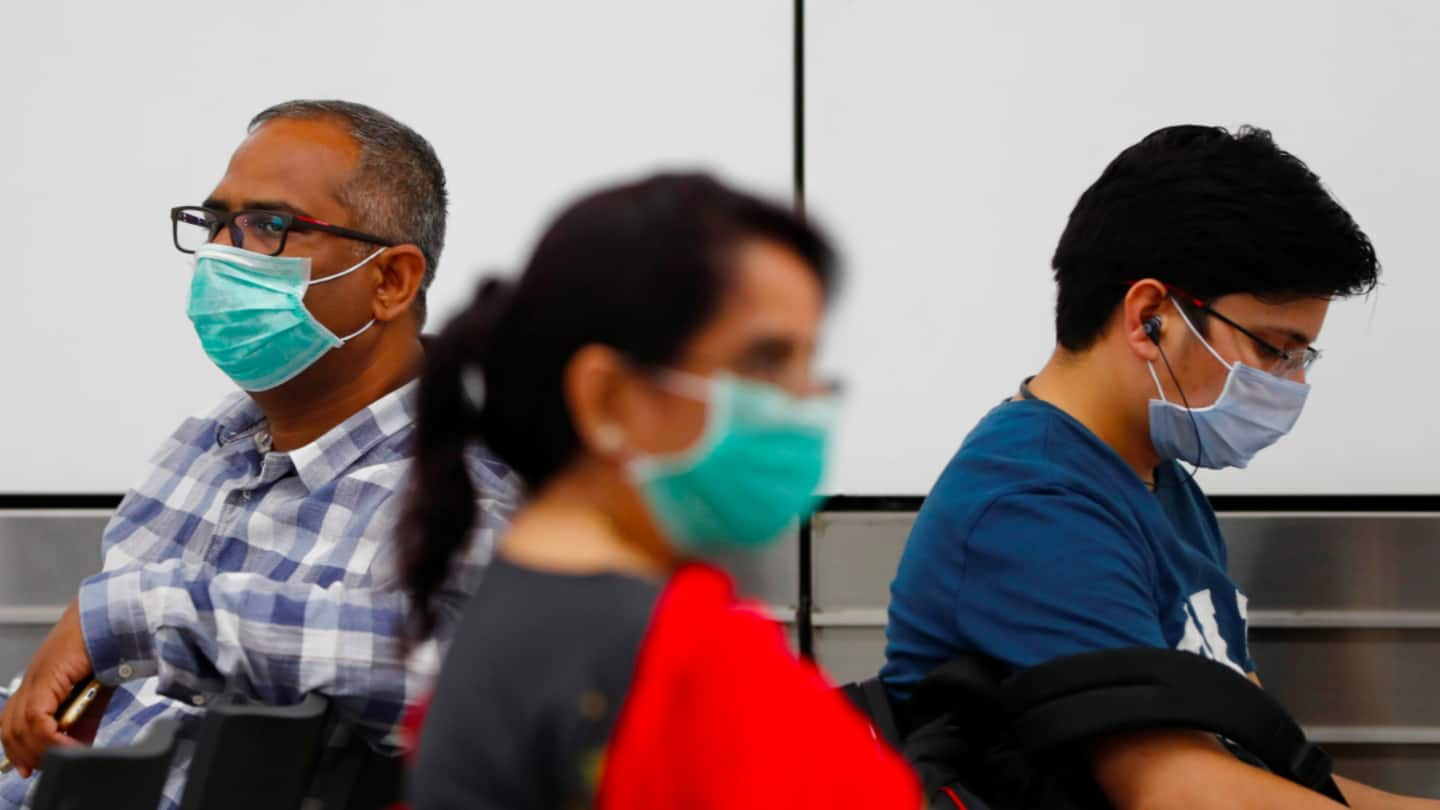
Coronavirus: Asymptomatic cases may be key to ending pandemic
What's the story
For months, it has been known that although the novel coronavirus is highly contagious, a large portion of infected individuals witnesses only mild or no symptoms.
Earlier, it was believed that a large number of asymptomatic patients was bad news since people could infect others without knowing that they were infected. However, experts now point out that this may be a good thing.
Details
'High rate of asymptomatic infection a good thing'
"A high rate of asymptomatic infection is a good thing," Monica Gandhi, an infectious-disease specialist at the University of California at San Francisco, told The Washington Post, "It's a good thing for the individual and a good thing for society."
According to Gandhi, asymptomatic infections may hold the key for community-wide immunity or herd immunity against SARS-CoV-2, the virus that causes COVID-19.
Immunity
Antibody surveys don't account for T cells
The idea that a large percentage of asymptomatic cases may be helpful in beating the pandemic by leading population-level immunity has scientific backing.
Antibody surveys conducted so far may have found the presence of antibodies against SARS-CoV-2 in a significant portion of the population, but the number declines over time.
Interestingly, these surveys have not accounted for the T cell immunity response.
T cells
T cells more important in fight against COVID-19
Scientists believe that T cells, which can last for years, are more important in fighting off an infection and COVID-19 patients rely more on them to recover.
A peer-reviewed study on coronavirus and T cells published in the journal Cell by researchers at the La Jolla Institute for Immunology near San Diego in mid-May had some interesting findings.
Findings
Study found T cell response against SARS-CoV-2 in old samples
The study compared blood samples from people recovering from COVID-19 with uninfected controls from donors to a blood bank between 2015-2018. The study found that T cells present in 40-60% of the old samples recognized SARS-CoV-2 when the virus did not even exist.
Similarly, a study conducted in Singapore found that T cells reacted to the virus in 50% of the samples.
Explanation
Similar viruses could trigger T cell response against SARS-CoV-2
It has been hypothesized that the T cell response in older samples could have originated from previous exposure to similar viruses, such as the coronaviruses that caused SARS and MERS, or common cold coronaviruses.
Alessandro Sette—one of the researchers in the study—reported new research in Science this week that the T cell response could be originating from the memory of common cold coronaviruses.
Vaccine
Existing vaccines also associated with lower coronavirus infection risk
At the Mayo Clinic in Cleveland, Andrew Badley also studied if existing vaccines could offer a protective effect against SARS-CoV-2.
The team collaborated with Nference—a company that manages their clinical data—and looked at records from 137,037 patients treated at the health system to assess the correlation between vaccinations and coronavirus infection.
Seven types of recent vaccines were associated with a lower coronavirus infection risk.
Information
Polio vaccines associated with 43% reduced coronavirus infection risk
A pneumonia vaccine given in the recent past was found to have a 28% reduction in coronavirus risk while polio vaccines had a 43% reduction in risk. The study suggests that some vaccines already being administered to people could be offering them protection against SARS-CoV-2.
Dosage
Wearing masks associated with more asymptomatic cases
Further, it has also been noted that settings, where people used proper face masks, had more number of asymptomatic cases.
For example, on the Diamond Princess cruise, where masks weren't used, 47% of those tested were asymptomatic, but on the Antarctic-bound Argentine cruise ship, where surgical masks were given to passengers and N95 masks to the crew, 81% were asymptomatic.
Conclusion
Findings indicate high doses could lead to more severe infections
Since masks are known to reduce exposure to pathogens, the findings indicate that people exposed to high doses of the virus develop more serious cases of COVID-19 and lower doses could trigger mild or no symptoms.
"It is an intriguing hypothesis that asymptomatic infection triggering immunity may lead us to get more population-level immunity," Gandhi said. "That itself will limit spread."